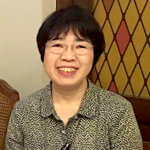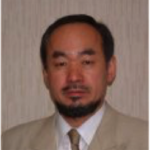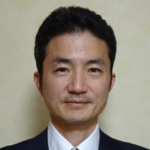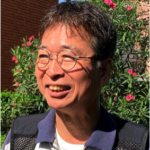Albert Sangrà, Director, Chair in Education & Technology for Social Change, UNESCO; Professor, Open University of Catalonia, Barcelona, Spain
 Professor Albert Sangra,
Professor Albert Sangra, is Director for the UNESCO Chair in Education and Technology for Social Change, Professor in the Department of Psychology and Education at the Open University of Catalonia, and researcher at the Edul@b research group.
He is a founding team member of the Open University of Catalonia (1994-95), where he served as director of the eLearn Center. He was a consultant and trainer for online and blended learning projects in Europe, America, Asia, and Australia, focusing on implementation strategies and quality for technology in teaching and learning.
His main research interests include ICT in education and training and in particular, policies, organization, management and leadership in the implementation of online education (e-learning) and its quality, as well as professional development for the online educator. He has worked as a consultant and trainer in several online and blended learning projects in Europe, America, Asia, and Australia. He was also a World Bank consultant.

 Professor Albert Sangra, is Director for the UNESCO Chair in Education and Technology for Social Change, Professor in the Department of Psychology and Education at the Open University of Catalonia, and researcher at the Edul@b research group.
Professor Albert Sangra, is Director for the UNESCO Chair in Education and Technology for Social Change, Professor in the Department of Psychology and Education at the Open University of Catalonia, and researcher at the Edul@b research group.
 Dr. Marko Teräs (Ph.D., MIDT, BA) works at Tampere University of Applied Sciences, School of Pedagogical Innovations. His main responsibilities are research group leader with CARDE (Critical Applied Research of Digitalization in Education), team leader for Ubiquitous Learning Environments, and project lead for Erasmus+ Capacity Building in Higher Education project, BUKA: Advancing Equity and Access to Higher Education Through Open and Distance Learning. Dr Teräs’ research and development interests are in critical studies of the experience and impact of digital technologies in education and critical participatory research methodologies.
Dr. Marko Teräs (Ph.D., MIDT, BA) works at Tampere University of Applied Sciences, School of Pedagogical Innovations. His main responsibilities are research group leader with CARDE (Critical Applied Research of Digitalization in Education), team leader for Ubiquitous Learning Environments, and project lead for Erasmus+ Capacity Building in Higher Education project, BUKA: Advancing Equity and Access to Higher Education Through Open and Distance Learning. Dr Teräs’ research and development interests are in critical studies of the experience and impact of digital technologies in education and critical participatory research methodologies. Dr. Kumiko Aoki (Ph.D. in Communication and Information Sciences) is Professor of Informatics at the Open University of Japan. She teaches digital media, social informatics, and e-learning via satellite television broadcasting, the Internet, and print materials as well as face-to-face classes at the Open University of Japan (OUJ). Her research interest is the effective use of information and communication technologies in higher education and their impact on the practices of teaching and learning in higher education.
Dr. Kumiko Aoki (Ph.D. in Communication and Information Sciences) is Professor of Informatics at the Open University of Japan. She teaches digital media, social informatics, and e-learning via satellite television broadcasting, the Internet, and print materials as well as face-to-face classes at the Open University of Japan (OUJ). Her research interest is the effective use of information and communication technologies in higher education and their impact on the practices of teaching and learning in higher education. Mark Curcher is a Senior Lecturer at Tampere University of Applied Sciences in Finland, where he also the Program Director and designer of the MBA in Educational Leadership and a member of the Critical Applied Research of Digitalization in Education (CARDE) Research Group. Mark has been an educator for more than thirty years in the UK, the Middle East and Finland. His current interests include the impact of digitalization of education on the identity of educators and the social impact of the increasing “datafication” in education. Curcher describes himself as a “Pedagogical Provocateur” and “Educational Emigre” while positioning himself as a critical pedagogue.
Mark Curcher is a Senior Lecturer at Tampere University of Applied Sciences in Finland, where he also the Program Director and designer of the MBA in Educational Leadership and a member of the Critical Applied Research of Digitalization in Education (CARDE) Research Group. Mark has been an educator for more than thirty years in the UK, the Middle East and Finland. His current interests include the impact of digitalization of education on the identity of educators and the social impact of the increasing “datafication” in education. Curcher describes himself as a “Pedagogical Provocateur” and “Educational Emigre” while positioning himself as a critical pedagogue. Junghye Fran Choi has extensive experience in using games to aid language learning: Language Learning eXperience (LLX) designer, a Massive Open Online Course (MOOC) instructor regarding gamification in teaching and learning at Udemy in the USA and professional development trainer for EFL teachers in Korea, chairperson of serious games and gamification division and a seminar organizer for serious games, gamification, AR/VR/MR and game AI domains at Korea Game Society in S. Korea.
Junghye Fran Choi has extensive experience in using games to aid language learning: Language Learning eXperience (LLX) designer, a Massive Open Online Course (MOOC) instructor regarding gamification in teaching and learning at Udemy in the USA and professional development trainer for EFL teachers in Korea, chairperson of serious games and gamification division and a seminar organizer for serious games, gamification, AR/VR/MR and game AI domains at Korea Game Society in S. Korea.
 Dr. Mayumi Kubota is a Professor in the Faculty of Informatics at Kansai University, Osaka, Japan. She served as Journal Director for the Society for Intercultural Education, Training and Research (SIETAR) and Board member of the Intercultural Education Society of Japan. Her interest in intercultural communications developed while teaching mathematics in a secondary school in Ghana as a volunteer for the Japan Overseas Cooperation Volunteers (JOCV).
Dr. Mayumi Kubota is a Professor in the Faculty of Informatics at Kansai University, Osaka, Japan. She served as Journal Director for the Society for Intercultural Education, Training and Research (SIETAR) and Board member of the Intercultural Education Society of Japan. Her interest in intercultural communications developed while teaching mathematics in a secondary school in Ghana as a volunteer for the Japan Overseas Cooperation Volunteers (JOCV).
 Dr. Makoto Kageto, Ph.D. is a Research fellow, UCHIDA YOKO Education Research Institute, an Affiliate Professor, Nihon Fukushi University, JAPAN, the Executive director, World Youth Meeting Steering Committee, and a Councilor of Japan Society of Educational Technology.
Dr. Makoto Kageto, Ph.D. is a Research fellow, UCHIDA YOKO Education Research Institute, an Affiliate Professor, Nihon Fukushi University, JAPAN, the Executive director, World Youth Meeting Steering Committee, and a Councilor of Japan Society of Educational Technology. Dr. Shinichi Sato, Ph.D., is a Professor, Nihon Fukushi University, JAPAN, the Chief Editor of International Journal of Educational Media and Technology, and a Board member of Japan Association for Educational Media Study
Dr. Shinichi Sato, Ph.D., is a Professor, Nihon Fukushi University, JAPAN, the Chief Editor of International Journal of Educational Media and Technology, and a Board member of Japan Association for Educational Media Study Dr. Yun Joon ‘Jason’ Lee is an Assistant Professor at the Daegu National University of Education. DNUE is a teachers university that specifically focuses on promoting primary school teachers. Dr. Lee is in charge of all the sophomore classes taught in English where students learn how to teach English in primary schools. His research topics include video games, media adaptation, and pop culture in language learning contexts.
Dr. Yun Joon ‘Jason’ Lee is an Assistant Professor at the Daegu National University of Education. DNUE is a teachers university that specifically focuses on promoting primary school teachers. Dr. Lee is in charge of all the sophomore classes taught in English where students learn how to teach English in primary schools. His research topics include video games, media adaptation, and pop culture in language learning contexts. Professor Kenichi Kubota received his Ph.D. from Indiana University in 1991. His expertise includes that of a high school science teacher, an overseas volunteer, an international education consultant, and researcher. Dr. Kubota was a member of the Faculty of Informatics from 1994 to 2020 and is currently Professor Emeritus of Kansai University in Osaka, Japan. His research interests include constructivism learning and environmental design, and educational development in international contexts.
Professor Kenichi Kubota received his Ph.D. from Indiana University in 1991. His expertise includes that of a high school science teacher, an overseas volunteer, an international education consultant, and researcher. Dr. Kubota was a member of the Faculty of Informatics from 1994 to 2020 and is currently Professor Emeritus of Kansai University in Osaka, Japan. His research interests include constructivism learning and environmental design, and educational development in international contexts. Katsuaki Suzuki, Ph.D. is Professor and Director of the Research Center for Instructional Systems at Kumamoto University. He is currently serving as President of Japan Society for Educational Technology (JSET), one of the major academic organizations in this field with 3000 members. Since graduating from the Instructional Systems Program at Florida State University in 1987, Dr. Suzuki has published books and articles in the field of instructional design and learning technology.
Katsuaki Suzuki, Ph.D. is Professor and Director of the Research Center for Instructional Systems at Kumamoto University. He is currently serving as President of Japan Society for Educational Technology (JSET), one of the major academic organizations in this field with 3000 members. Since graduating from the Instructional Systems Program at Florida State University in 1987, Dr. Suzuki has published books and articles in the field of instructional design and learning technology.